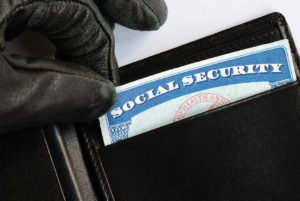
What is Impersonation?
According to state statute N.J.S.A. 2C-21-17A, impersonation (also known as theft of identity), occurs when someone does the following:
- A person impersonates another person or assumes a false identity in order to obtain a benefit or to hurt or defraud another person
- A person pretends to be a representative of someone or an organization in order to defraud or hurt another or benefit himself/herself
- A person impersonates another, assumes a false identity, or makes a false statement regarding the identity of any person in an oral or written application for services or obtaining services
- A person obtains someone else’s personal information and uses it in a fraudulent way
- A person impersonates or assumes a false identity in order to avoid paying for prior services
For example, let’s say your cousin Bob doesn’t have health insurance and gets into an auto accident. At the emergency room, when asking for his personal information, he uses your name in order to use your health insurance. This is considered a form of impersonation.
The Penalties of Impersonation
Theft of identity in New Jersey is considered taken seriously in New Jersey. Depending on the extent of the crime, you could be facing up to 10 years in prison. In addition to providing restitution to the victim, the punishment of impersonation is as follows:
- If the person obtains an amount of less than $500 and involves only one victim, the defendant is facing a fourth degree crime. You can face up to 18 months in prison and fined $10,000.
- If the person obtained an amount between $500 and $75,00, the defendant is facing a third degree crime. This is the most common offense people can face. You will be facing three to five years in prison and a fine of $15,000.
- If the person obtained an amount of more than $75,000, the defendant has committed a second degree crime. The punishment is five to ten years in prison with a $150,000 fine.
But let’s say it’s something simple. For example, you obtain a false ID so you can buy alcohol and are caught. In a case such as this, it’s considered a disorderly persons offense.
Accused of Impersonation?
If you are accused of impersonating or stealing someone’s identity, you’re going to need a criminal defense attorney to assist you with the process. Contact the Law Offices of Anthony Carbone today for a free consultation.